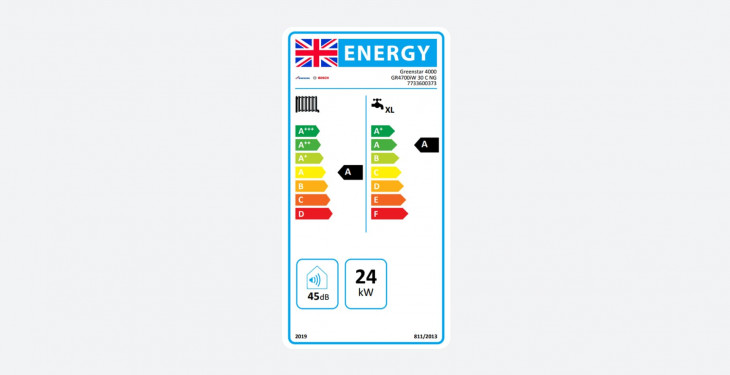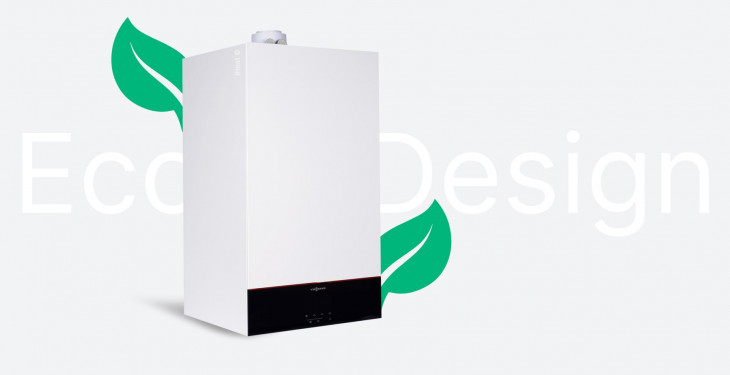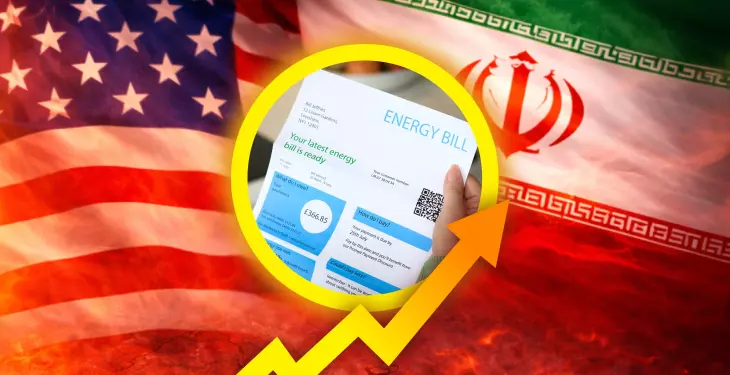

Written by Stephen Day
Gas Safe Engineer
Updated: 30th May, 2025
When it comes to buying a new boiler, there can be some unfamiliar terms or phrases that describe a boiler's ability/measure its performance.
Get a new boiler quote, save up to £550 per year (0% APR available).
One of these potentially tricky, technical terms is ‘ErP’, but don’t worry, in this blog we’re going to be breaking down the meaning of this heating acronym, and why it's important to pay attention to this measurement whenever it’s applied to a boiler you’re interested in purchasing.
ErP stands for Energy-Related Products and is a way of measuring an energy consuming appliance, such as a boiler’s, efficiency in converting the energy it uses into the desired product, heat for your property and its water.
ErP was introduced in 2009 by the European Union in order to increase the clarity of an appliance’s function and aid in the sharing of information from manufacturer to consumer, all the while promoting an eco-consciousness for both.
This aspect of ErP is to inform consumers with complete transparency, the energy efficiency of the product they are buying, and its subsequent likelihood of affecting their energy bills.
Appliances are rated in energy efficiency classifications from G to A (A+++ for certain types of appliance); the higher the assigned alphabetical number rating, the more efficient the appliance is in terms of its energy usage.
Formerly SEDBUK (Seasonal Efficiency of Domestic Boilers) were responsible for boiler energy ratings, the ErP directive replaced them in the majority of cases for modern appliances.
Some manufacturers still attach a SEDBUK rating to their products, and operate a similar alphabetical classification system.

All modern appliances must be designed to meet specific criteria in terms of eco-consciousness and environmental friendliness, any appliance that does not meet this prerequisite criteria is prohibited from being sold.
For most homes in the UK, the cost of heating and hot water can be a very pricey expenditure, with the Energy Saving Trust suggesting over half a home's monthly financial outgoings are spent in this area.
Therefore ensuring your boiler is as efficient as can be could save you money as well as keep you toasty.
Here are some other tips for lowering your heating bill.

Naturally, the newer a gas boiler system, the more efficient it is due to engineering and design progression.
Outdated or failing systems could be the reason for your shock when seeing your monthly energy bills.
Most UK boilers are running at 80% energy efficiency with some antiquated models operating at 60% or less! These sub optimal levels of output are as avoidable as they are shocking.
Age of Boiler | Efficiency Percentage | Efficiency Rating |
0+ Years | 90% + | A |
10+ Years | 85% + | B/C |
15+ Years | 80% + | C/D |
20+ Years | 70% + | E/F |
25+ Years | 60% + | G |
The direct correlation between boiler age and its efficiency is clear to see in the newer systems’ ErP, so it may be worth upgrading your model to an energy efficient boiler. check out our handy guide on the most energy efficient boilers.
By switching to a newer, more efficient model, you could be making potential savings of hundreds of pounds annually.
Our iHeat collection of sleek and efficient boilers can help heat your home while saving you money!
Last updated: 30th May, 2025

Written by Stephen Day
Gas Safe Engineer at iHeat
Stephen Day is a Gas Safe registered and FGAS certified engineer with over 20 years of hands-on experience in the heating, cooling, and renewable energy industry, specialising in boiler installations, air conditioning, and heat pump systems.
LinkedInArticles by Stephen Day are reviewed by iHeat’s technical team to ensure accuracy and reliability.

05th March, 2026
Rising tensions in the Middle East can influence global oil and gas markets, which can eve...
 Read Article
Read Article

27th February, 2026
Condensing boilers are considered to be some of the most efficient boilers out there on th...
 Read Article
Read Article

26th February, 2026
Vaillant boilers use a variety of parts to ensure efficient operation. This section looks...
 Read Article
Read Article
No obligation. Takes less than 60 seconds.